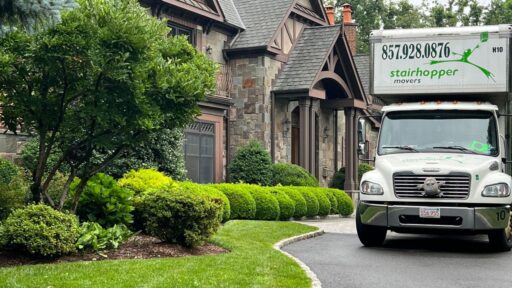Understanding the true value of your property is key to securing the right home insurance coverage. Without accurate numbers, you risk being underinsured or paying for coverage you don’t need.
Knowing how to assess property value helps you strike the right balance. It also ensures peace of mind during unexpected events. From analyzing market trends to evaluating replacement costs, there are smart ways to get it right.
Curious to know how? Let’s dive in!
Know the Market Value
The market value of your property is often the first step in assessing its worth for insurance coverage. This figure reflects what buyers in your area are willing to pay for homes similar to yours.
Understanding market value gives you a baseline for comparison. It also helps you avoid underestimating or overestimating your property’s protection needs.
By keeping up with housing trends, you’ll have a clearer picture of your home’s true standing in the market. This knowledge aligns your insurance coverage with real-world value, ensuring your property is neither over-insured nor under-insured.
Get a Professional Appraisal
A professional appraisal provides an accurate and unbiased look at your property’s value. Licensed appraisers consider:
- location
- home size
- condition
- recent sales in the area
Their detailed reports go beyond surface-level estimates, giving you solid numbers to work with. An appraisal is useful if your home has unique features or improvements.
Insurance companies also recognize the credibility of professional appraisals. Having this documentation makes it easier to secure appropriate coverage.
With a trusted appraisal, you’ll feel confident knowing your insurance policy reflects your home’s actual worth, not just an online guess or assumption.
Analyze Recent Sales
These sales reflect what buyers are paying today, not outdated figures. Analyzing prices of similar homes gives you insight into market trends and shifts. This step helps ensure your insurance aligns with realistic values.
If neighboring homes are selling high, your property’s replacement costs may also rise. If prices drop, you’ll know to reassess coverage to avoid overpaying.
Monitoring nearby sales creates a clear snapshot of your home’s market position. It’s a simple yet powerful way to stay updated and make smarter decisions.
Consider the Replacement Cost
This refers to how much it would cost to rebuild your home today using similar materials and standards. Construction expenses, labor, and material prices all influence this figure.
Insurance based on replacement cost ensures your home can be restored after damage without leaving you short. Unlike market value, it doesn’t include land, making it a more practical measure for coverage.
By focusing on replacement cost, you’re protecting yourself from the unexpected and ensuring you have enough funds to rebuild when it matters most.
Examine Property Features
Your home’s unique features play a big role in its value and insurance needs. You can increase replacement costs with details like:
- square footage
- layout, upgrades
- high-end finishes
Even energy-efficient systems or security enhancements can influence coverage requirements. Special touches such as custom flooring or designer kitchens raise rebuilding expenses. Ignoring these details may leave you underinsured.
By carefully documenting your home’s features, you provide insurers with accurate information for a fair policy. The more specific you are, the better your insurance can match the property’s real worth and protect your investment.
Look at Land Value
Insurance usually doesn’t cover the land your home sits on, but knowing its value is still important. Land plays a big role in overall property value. Things like location, size, zoning, and nearby development can raise or lower its price.
In many cases, land in a growing area gains value faster than the house itself. By understanding this, you can separate land value from replacement cost when figuring out insurance needs.
This way, your coverage focuses only on the house, helping you avoid extra costs and preventing you from being over-insured.
Monitor the Local Economy
The economy in your area has a big effect on home values. When jobs are strong and businesses are growing, home prices usually go up.
If the economy slows down, demand drops, and prices can fall. Watching these changes helps you know when to adjust your insurance coverage.
Higher values may mean you need more protection, while lower values might mean you’re paying too much. Keeping an eye on the local economy helps your coverage stay accurate and ensures your property is always protected.
Factor in School District Ratings
Homes in top-rated districts often sell for more, even if they’re small or simple. Families want good schools, which raises demand and boosts prices. This can mean your home needs more coverage than you expect.
Even if you don’t have kids, living in a strong school district makes your property more valuable. By paying attention to school ratings, you can better understand value changes and make sure your insurance matches your home’s true worth.
Utilize Online Valuation Tools
Online valuation tools give quick estimates of your home’s value. They use data like:
- recent sales
- market trends
- property records
These tools aren’t perfect, but they’re a helpful way to check value changes over time. Using more than one tool can give you a better overall picture. Still, they shouldn’t replace a professional appraisal.
Instead, use them in between reviews to stay updated. They make it easy to track your property’s value so your insurance coverage stays up to date and accurate.
Consult with Your Insurance Agent
Your insurance agent can help you understand how property value affects your coverage. They’ll explain things like market value, replacement cost, and special home features.
An experienced agent makes sure you don’t miss important details. They’ll also suggest the best options to keep your policy strong and affordable.
For instance, if you’re living anywhere in Tallahassee, you may click for homeowners insurance in Florida to get advice and compare coverage. By working closely with your agent, you’ll feel more confident knowing your home is valued correctly and fully protected.
Assessing Property Value for Better Home Insurance Coverage
Assessing your property’s value is more than numbers-it’s about peace of mind. With the right coverage, you know your home and investment are safe from the unexpected.
Don’t wait. Start evaluating your property and make sure your home insurance reflects its true worth. Talk to a trusted agent, explore your options, and take control of your coverage today.
Did you find this article helpful? Check out the rest of our blog now!







